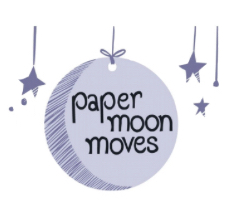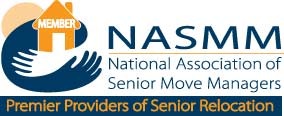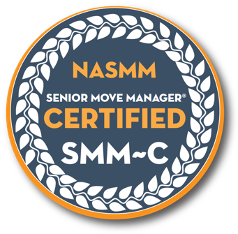In an earlier blog, I covered some basic services that we or seniors we love may need as we age. These included Trust & Estate Attorneys, Geriatric Care Managers, and Daily Money Managers. Now I’ll continue with more professions. You may have heard of some of these or they may all be new to you. I will continue this list in future blogs. Please comment with any fields you’d like me to address.
Home care or “in home care”
There may come a time when you find that your older relative or friend is having too much trouble managing their day to day life on their own and could use some support. Perhaps they are getting confused easily or are prone to falling. Maybe they can no longer do the shopping on their own or your concerned about them cooking when they’re alone. There are a lot of options for hiring someone to be home with them. Support can be 24/7, for example, or it could be for specific hours during the days. And the level of care provided can range from simple things like companionship, to more complicated things like meal preparation, transportation assistance, help around the house, etc.
The amount of support someone needs at home is usually assessed by how a person can handle the Activities of Daily Living (ADLs). In brief, ADLs, are: moving around without support, bathing/grooming, feeding oneself, using the toilet alone, managing medications, etc.
A home aide is often found to be necessary on a temporary basis. For example, someone may come home from a hospital stay and need an aide to help them transition to living at home independently again, or they may need medication management after a fall or illness.
Someone with mobility issues, dementia, or other chronic illnesses may need long term home care.
Private home care
Some of our clients opt to find a private home care aide. This can work out well because you can vet the aide carefully and make sure you are comfortable having them home alone with your family member. You can sometimes find an aide who has helped a family friend for years. Often times these private aides become close friends and provide companionship and love.
There are risks to hiring a private aide. For one thing, you are relying on them to show up when expected. If they are ill or need to care for their own family unexpectedly, you may find yourself scrambling to find a last-minute replacement. There are also risks involved with insurance. We have heard some sad stories about private aides stealing from clients, or suing clients if they injure themselves on the job. For these reasons, some people find it worth considering hiring an agency instead of a private individual.
Home care from an agency
If you use an agency to find in home care, you will be hiring the agency, not the individual aide. The agency will select which aides will work with you in your home. You often have the option of requesting a new aide if you feel there isn’t a good fit with the one you are assigned, but you will be limited to working with someone registered with the agency you hired.
If anything goes wrong, or an aide falls ill or can’t make it to you one day, the agency will step in and find a solution for you. They can send a replacement aide on short notice. And you will have the comfort of knowing that the aides in your home are provided with workman’s compensation insurance in the event that anything happens to them while in your home.
Whether private of through an agency, the best way to find an aide is to ask for personal recommendations from others who have had experience with home care.
Senior placement agent
Often it becomes too difficult for a senior to remain at home and they may start to consider moving to a senior residence. We touched on the types of senior residences in an earlier blog. But the truth of the matter is that it can be really confusing to figure out what kind of residence makes the most sense and what your options are. For this reason, a relatively new profession has recently taken off: senior placement agencies.
A Placement Agent will interview you and your family to understand the level of care you need and talk about the costs and other factors to consider as you select a place to live. Then they will provide a list of options that match your needs. They can arrange tours for you, arrange for you to have meals at the residences (it’s a good idea to get a sense of the food before moving in, When we ask our clients about their new residences, opinions regarding the food – both positive and negative – are usually the first response), and may even accompany you on the tours to help make sure your questions are all addressed.
There is generally no charge to the client who engages a placement agent. They are typically paid by the residence into which you ultimately move.
Healthcare services that can be provided in your home
A whole bunch of companies are developing ways to bring medical services to seniors in their homes. These can often be expensive if they aren’t covered by your insurance, but some clients find them to be quite useful. These days you can have physical therapists, doctors and nurses, audiologists, dentists, and more come right to you at home. In New York City there are even companies now providing the kinds of care you get in an emergency room, in your home, including EKGs, X-rays, IV fluids, and wound care.
Technology support at home
Technology can be frustrating for seniors, and asking for help of their family and friends can often be embarrassing. There are some non-profits and companies that offer technological support to seniors. Senior Planet is a non-profit based here in New York City that provides support and classes for seniors. They cover all kinds of topics such as how to download and use apps, how to use messaging tools, how to protect your information online, and much more. There are also private companies that will offer one-on-one tech support to seniors.
Alzheimer’s Foundation of America
The AFA provides a ton of services to support caregivers of people living with dementia, including a hotline for caregivers, memory screening, virtual and in-person meetings and courses, caregiver support groups, the Dementia Apartment in New York City (featuring products and design that make life easier and more enjoyable for people living with dementia), and just a ton of good information about dementia.
Lighthouse Guild
The Lighthouse Guild provides services and support to people who are visually impaired. They have a technology center in New York City where you can try out the latest technology in this field, and they offer virtual support groups and technology demonstrations on their website.
There are so many resources that we’ll continue this in future blogs. If you need help finding any of the above resources, don’t hesitate to reach out to us on our Contact Us page.











